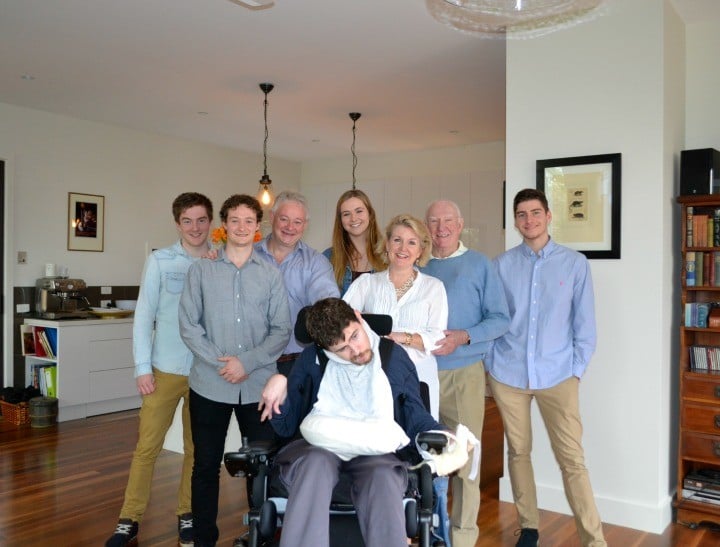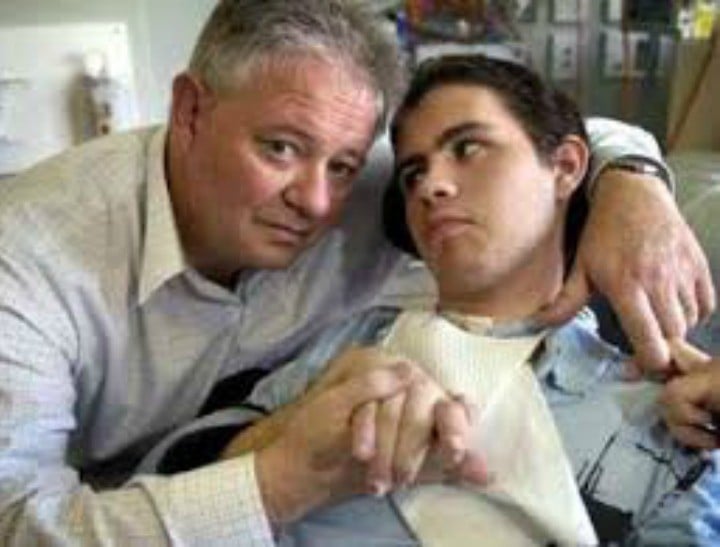
“Imagine a 20-year-old in aged-care, the youngest there by 50 or 60 years. No peers, and no age-specific treatment…. The music playing over the loudspeakers isn’t Coldplay, it’s Hoagy Carmichael…”
What did you do for your 20th birthday? Did you have a brunch with your family? Did you have dinner with friends? Maybe you went out for a drink, and a dance. After all, everyone keeps telling you, ‘you’re in the prime of your life.’
James Macready-Bryan was in the prime of his.
In 2006, on James’ 20th birthday, he and a friend were out in Melbourne’s CBD. It was supposed to be a night of celebration for a promising, young arts-law student. After a casual comment escalated into an attack, James suffered a catastrophic brain injury, leaving him permanently disabled. The incident took away his ability to speak, walk, eat and see. Because James’ injury was not a result of a motor vehicle or workplace accident, he had no automatic right to financial aid. Faced with the devastating reality of James’ need for ongoing care, his friends and family established the James Macready-Bryan Foundation (JMBF).




Top Comments
I'm all for the term age appropriate care but we need to broaden our scope when we talk about it. Although the most important we can't just focus on the younger people living in aged care. There are vastly different generations of older people living in aged care facilities. Working in aged care I see lots of 60 year olds living with 90 year olds but all lumped together as old, this broad age range means people have vastly different tastes in music, food, movies and activities not to mention life experiences and expectations. We need to provide age appropriate care as a basis for person centred care for any age living in care facilities